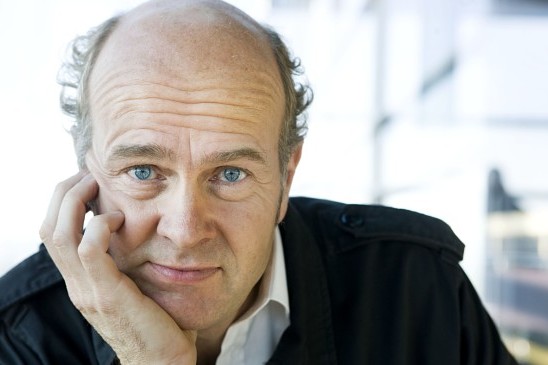Erik Poppe • Director
From Juliette to Juliette
- A Thousand Times Good Night is the fourth feature by director and war photographer Erik Poppe.

After the trilogy Schpaa (1998), Hawaï, Oslo [+see also:
trailer
film profile] (2004), and Troubled waters [+see also:
trailer
film profile] (2008), director Erik Poppe is presenting his fourth feature this autumn: A thousand times good night. Co-written with Harald Rosenløw Eeg, the film is a coproduction between Paradox (Norway), Zentropa International (Sweden) and Newgrange Pictures (Ireland). Starring French actress Juliette Binoche, A thousand times good night [+see also:
trailer
interview: Erik Poppe
film profile] won the Grand Prix of the Jury at the Montreal Film Festival.
Cineuropa: A thousand times good night – why this title?
Erik Poppe: I wanted a poetic title packed with emotion, an open title, quite intriguing. I thus picked a quote from Romeo and Juliette by Shakespeare, a sentence said by Juliette. Often, too often, Rebecca, the heroine in my story, who is a war photographer, as I was, must say goodnight to her children, either on the phone or on Skype, because she works far away from her family, in dangerous areas. We fear that these goodnights/goodbyes could be the last.
Is it a love story?
Yes, the love of family, and work too, loving what you consider your mission. It is difficult to manage both, it’s often a painful dilemma. It is tiring to have to choose, because life is complicated, and in the end, all we want is to stay alive. How do we know the choices we make are the right ones? I tend to like those who make the wrong one, as they say.
Is Rebecca’s story yours?
It is my story in many respects. The talks with family, the separations, I lived through all of them. Some of the sentences in the dialogue were uttered by my own children. I preferred for the main character to be a woman because I think this type of dilemma is more obvious when a woman faces it.
Why did you choose Juliette Binoche?
She is an excellent actress, passionate and brave. The role suited her, I think. I was also lucky that she happened to be available and liked my films. We choose each other mutually. I don’t much like actors who are ready to do anything for a role, at the expense of their dignity or integrity.
Do you still feel like a war photographer?
I never felt like one, but rather a witness, a narrator in a privileged situation, because I addressed an audience who wanted to be informed. I took photos, but I also wrote. Now I make films, and, just like I used to, what interests me is to progress, dare to ask uneasy questions, without trying to be politically correct. I feel there is a renewed interest for political films.
Can your pictures be seen in exhibitions?
No. I don’t think that that is their place. For one thing, I do not like retrospectives, for my films or photos. After the first time, I refuse to see my films again. As for the pictures, I always wanted them to shock the readers in the magazines in which they were published, for them to raise awareness. The public at exhibitions is prepared, the surprise effect is not the same. To refuse exhibitions is also about respecting the people in the photos. It is a matter of decency.
(Translated from French)
Did you enjoy reading this article? Please subscribe to our newsletter to receive more stories like this directly in your inbox.
















